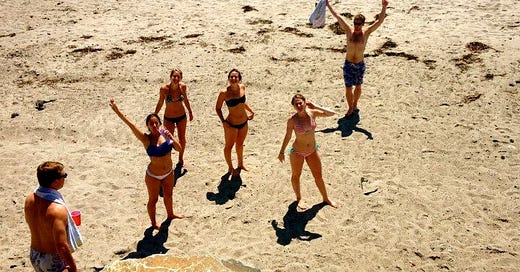This issue is the second in a series we’re running this month on friendship.
If you missed last week’s essay (Aja discusses why she’s been a flaky friend — and what’s changed), you can catch up here.
Keep reading with a 7-day free trial
Subscribe to platonic love to keep reading this post and get 7 days of free access to the full post archives.





